
Barry Manilow is an American singer and songwriter with a career that spans six decades. His hit recordings include "Could It Be Magic", "Looks Like We Made It", "Mandy", "I Write the Songs", "Can't Smile Without You", "Weekend in New England", and "Copacabana ".
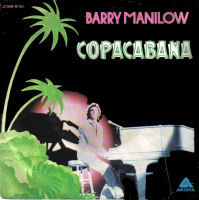
"Copacabana", also known as "Copacabana (At the Copa)", is a song recorded by Barry Manilow. Written by Manilow, Jack Feldman, and Bruce Sussman, it was released in 1978 as the third single from Manilow's fifth studio album, Even Now (1978). The same year, "Copacabana" appeared in the soundtrack album of the film Foul Play.

"I Write the Songs" is a popular song written by Bruce Johnston in 1975 and released on his album Going Public in 1977. Barry Manilow's version reached number one on the Billboard Hot 100 chart in January 1976 after spending two weeks atop the Billboard adult contemporary chart in December 1975. It won a Grammy Award for Song of the Year and was nominated for Record of the Year in 1977. Billboard ranked it as the No. 13 song of 1976.

"Brandy", later called "Mandy", is a song written by Scott English and Richard Kerr. It was originally recorded by English in 1971 and reached the top 20 of the UK Singles Chart.

Barry Manilow II is the second studio album by Barry Manilow released in 1974. Propelled by the major success of its lead single "Mandy" and featuring a further international hit in "It's a Miracle", the album was a commercial breakthrough for Manilow. First issued by Bell Records, it was reissued after the company was reorganized into Arista Records. The album's success spawned a notable parody in the picture sleeve of Ray Stevens' 1979 single, "I Need Your Help Barry Manilow".

Barry Manilow Live is the fifth album by the singer-songwriter Barry Manilow. The album was released in 1977, and it became Manilow's first to top the US Billboard 200.
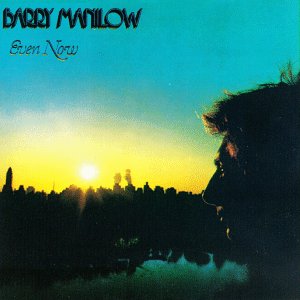
Even Now is the fifth studio album by singer-songwriter Barry Manilow. It was recorded at A&M Studios in Hollywood, California, and released in 1978. The album reached triple platinum and spun off four hit singles in 1978 and early 1979: the title song, "Can't Smile Without You", "Copacabana" and "Somewhere in the Night".

Greatest Hits is the first greatest hits album by singer/songwriter Barry Manilow, released in 1978. The album was certified 3× Platinum in the US, and would be Manilow's last of that certification, as of 2021. It also features the new single, "Ready to Take a Chance Again", which reached #11 in the US the same year. The US CD version has been released in three slightly different incarnations. The first pressing featured the single version of "Copacabana" (3:58), and the non-hit studio version of "Daybreak" (3:09). "Jump Shout Boogie" was omitted from all three versions.
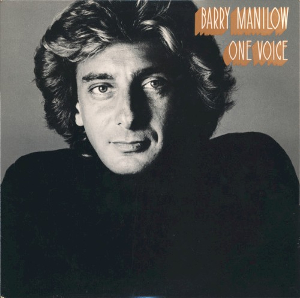
One Voice is the sixth studio album by singer/songwriter Barry Manilow, released in 1979. It was recorded at United Western Studios and Allen Zentz Recording in Hollywood. The album peaked at #9 on the Billboard 200 chart and was certified double platinum by RIAA. The album contained three top-40 singles, "Ships" which peaked at #9, "When I Wanted You" at #20 and "I Don't Want to Walk Without You" which hit #36 on the Billboard Hot 100.

Barry is the seventh studio album released by American singer and songwriter Barry Manilow in 1980 on Arista Records. The album was certified Platinum in the US by the RIAA.

If I Should Love Again is the eighth studio album released by singer and songwriter Barry Manilow. The album was recorded at United Western Recording Studios in Los Angeles, California. The album was released in 1981, and it was certified gold.

Here Comes the Night is the ninth studio album by singer-songwriter Barry Manilow, released in 1982 by Arista Records. The United Kingdom release went by the title I Wanna Do It With You. It received a Gold certification from the RIAA. The album was recorded at Sound City Recording Studios in Van Nuys, California.
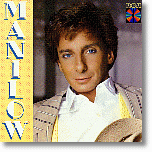
Manilow is the eleventh studio album by singer-songwriter Barry Manilow, released in 1985. It was his first album to miss the Top 40 and fail to earn a gold certification. Many feel it was due to the prominence of synthesizers, a departure from his renowned piano ballads. This album was one of Manilow's two albums with RCA Records.

Barry Manilow is a studio album released by singer and songwriter Barry Manilow in 1989. It was Manilow's thirteenth studio album overall and second studio album on his second tenure with Arista Records. The album represented a hint of future album releases in that many of the songs were not written/co-written by Manilow, which until that point had been rare for him. After the release of this album, Manilow embarked on introducing contemporary audiences to pop music of the 1930s through the late 1940s.

"Could It Be Magic" is a song written by Adrienne Anderson and composed by American singer-songwriter Barry Manilow, inspired by Frédéric Chopin's Prelude in C minor, Opus 28, Number 20.

"Can't Smile Without You" is a song written by Christian Arnold, David Martin and Geoff Morrow, and recorded by various artists including Barry Manilow and the Carpenters. It was first recorded and released by David Martin as a solo single in 1975. The version recorded by Manilow in 1977 and released in 1978 is the most well-known.

The Songs 1975–1990 is a Barry Manilow compilation album released in 1990, covering 15 years of chart hits.
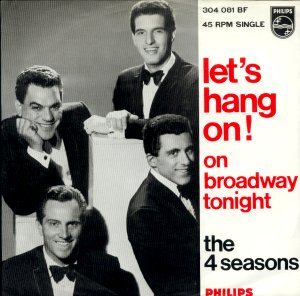
"Let's Hang On!" is a song composed by Bob Crewe, Sandy Linzer, and Denny Randell that was popularized by the Four Seasons in 1965.

"Somewhere Down the Road" is a popular song written by Cynthia Weil and Tom Snow and most famously recorded in 1981 by Barry Manilow. Weil wrote the song's lyrics and Snow wrote the melody.

"I Made It Through the Rain" is a song that became a hit after it was recorded by American singer Barry Manilow, also included on his 1980 album, Barry. The song was originally recorded in 1979 by its co-writer Gerard Kenny who composed it with Drey Shepperd about a struggling musician who never gives up. Manilow heard the song and revised the lyric with Jack Feldman and Bruce Sussman to make the song about the everyday person's struggles, rather than those of a profession.




















